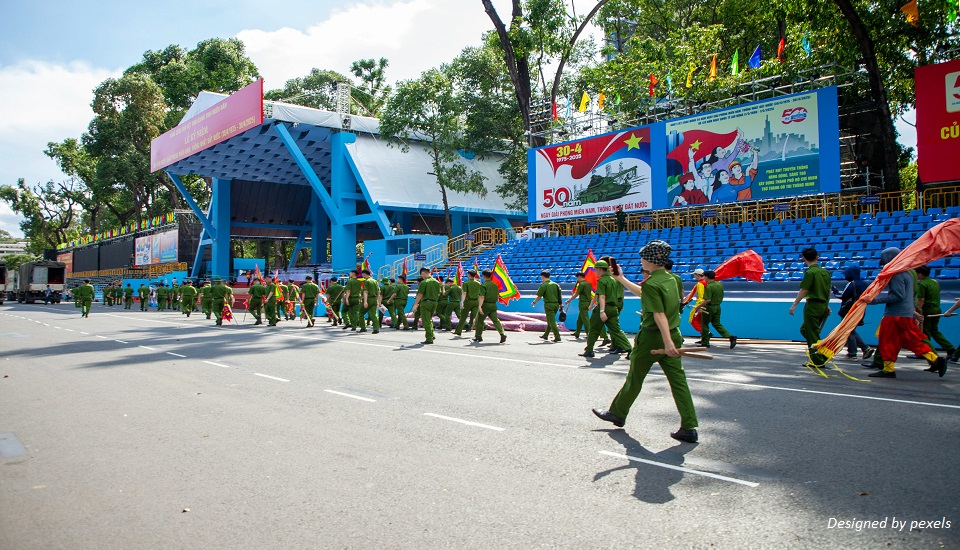Why Military Soldiers Need English Language Skills
30th April 2025

When you think of the military, the first things that probably come to mind are tanks, uniforms, and strict training drills. But have you ever thought about how important language skills are for soldiers today? Knowing how to speak, understand, and respond in English is just as important as knowing how to use a compass or a radio.
Across global military operations, English has become a common bridge for communication — from peacekeeping missions in Africa to multinational exercises in Europe and Asia. That is why military language training has evolved into something powerful, fast, and focused.
Why Soldiers Need Language Skills
Imagine being somewhere away far from home where no one understands your words. Now imagine trying to help people during a flood or earthquake. Pretty hard, right? That is why soldiers learn languages, especially English. Since English is the language of communication in most places, it is beneficial for soldiers to have a good grasp of it.
When military members know English well, they can:
- Talk to soldiers from other countries during team missions.
- Help people who are hurt or scared during emergencies.
- Understand important information from local people.
- Keep small problems from turning into big ones.
- Write clear reports about what is happening.
Studies show almost seven out of ten global military operations now need people who can speak English well. That is because English has become the main language that different countries use when working together.
How Military Language Classes Work
Educators with a TEFL certification for teaching in Vietnam agree that language classes for soldiers look very different from what you might have seen in school. The classes are set up to teach useful things fast. Here's how they work:
1. Learn the Basics
First, soldiers learn simple words and sentences. They practice speaking clearly so others can understand them. They also learn how to ask questions and give easy answers.
2. Military Words and Phrases
Next, they learn special military words. This includes radio talk (like 'copy that' or 'over and out'), emergency words, words for weapons and equipment, and how to give directions. They also learn how to write short reports in English.
3. Real-World Practice
Books can only teach so much. The best way to get better is by using the language every day. Many soldiers practice their new language skills by working with soldiers from other countries, or joining peace missions.
4. News and World Events
Also, soldiers need to know what is happening in the world. They can read news stories and watch videos in English to learn about different places and problems. This helps them understand the areas where they might work someday.
The Evolution of Military Language Teaching Methods
If you think learning a language means sitting at a desk with a boring book, think again! Military language classes now use fun, exciting ways to teach. In the past, soldiers had to memorize long lists of words. They did the same grammar exercises over and over. It was not very fun or helpful.
Today's classes are totally different. They use:
1. Real-Life Tasks
Instead of just reading about the English language, soldiers practice real situations. They might pretend to help people after a storm or work with soldiers from another country.
2. Fun Role-Playing Games
Teachers set up make-believe situations where soldiers use their new language skills. For example, they might practice talking to angry people or giving first aid instructions.
3. Computer Programs and Phone Apps
Special language apps help soldiers practice anywhere, anytime. They can learn new words while waiting for lunch or practice speaking on their phones.
4. Virtual Reality Headsets
Some military classes use special computer goggles that make you feel like you are in another place. Soldiers might practice English while walking through a computer version of a village or rescue site.
Research reveals that these new tech tools help soldiers learn languages up to 50% faster than old-fashioned methods. That means they can get ready for important missions more quickly.
Teaching Tips for Military Language Classes
If you are an experienced or aspiring TEFL teacher, you might wonder — 'Is there a role for me in the military world?' The answer is yes! In fact, there is a growing demand for qualified English teachers in military and government sectors.
Here are 6 tips on how you can prepare to contribute:
- Create lessons where students have to complete real jobs using the language. For example, have them give first aid instructions or explain how to find safe drinking water.
- Don't wait to teach important military terms. Mix them into lessons from the beginning so students get lots of practice.
- Use actual radio messages, military reports, or news stories about peacekeeping missions. This helps students get used to real language, not just textbook examples.
- In real missions, soldiers often need to talk while things are loud, scary, or confusing. Create exercises where students must communicate clearly even when there are distractions.
- Take advantage of language apps, computer programs, and virtual reality tools. These make learning more interesting and let students practice anywhere.
- Military language needs to change all the time. Keep learning about new terms and communication styles used in today's missions.
Bottom Line
Educators who completed the Online TEFL courses for teaching in Vietnam believe that strong English skills are no longer a 'nice to have' in the military — they are essential. Soldiers today are not just warriors; they are communicators, negotiators, and peacemakers. So, if you are ready to expand your career beyond the classroom, English language training for the military could be your next exciting step.